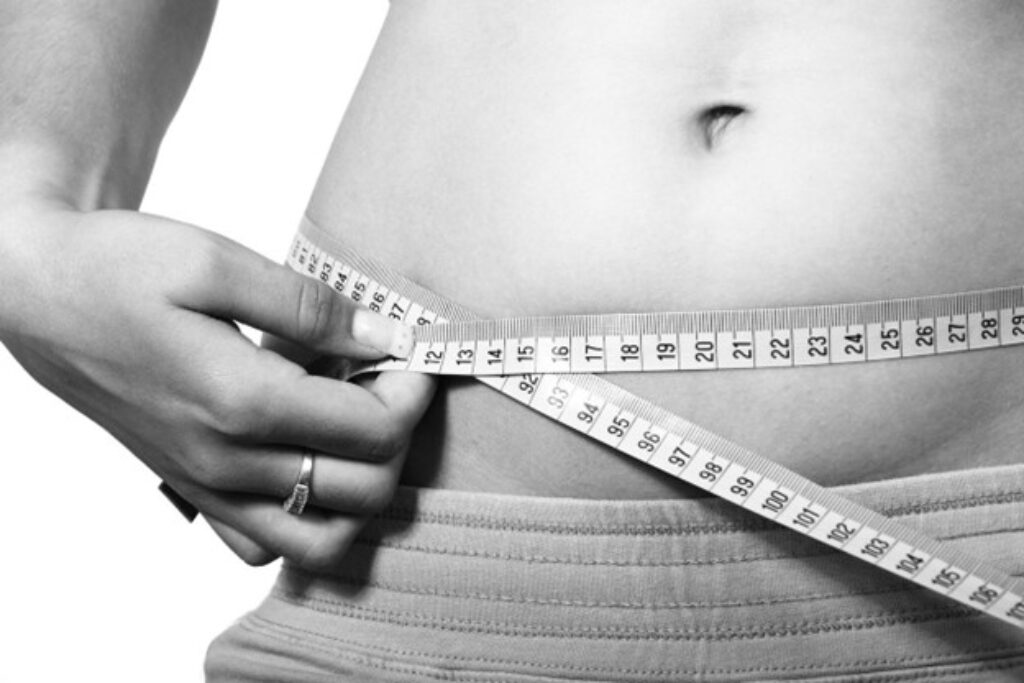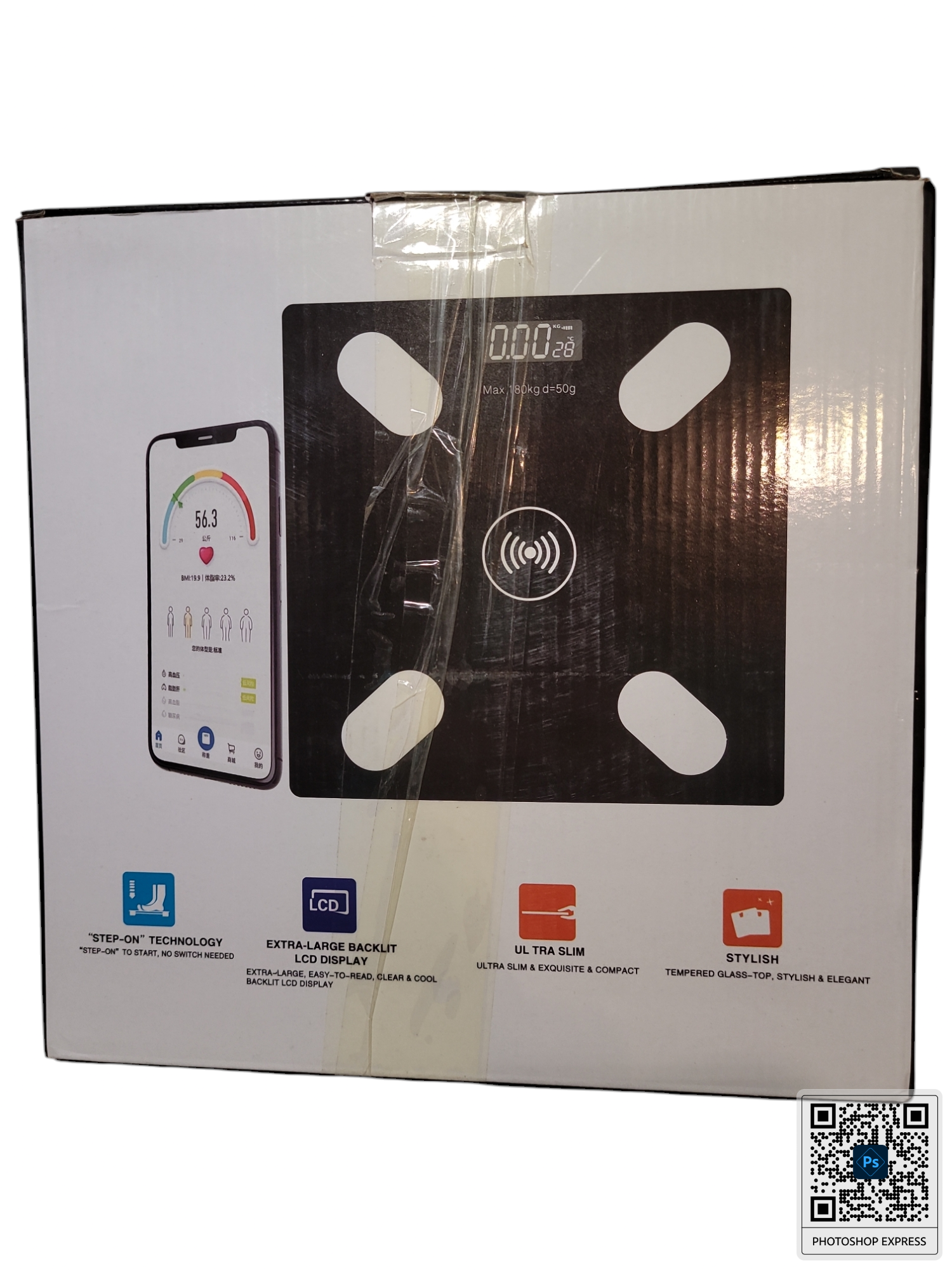
Fitness enthusiasts are always on the lookout for new and effective fitness and exercise related advice in guidebooks or online. However, not all advice is created equal. In your quest to find new ways to lose weight, you may encounter certain claims that stretch the truth or are downright incorrect.
It can be a chore to sift through this jungle of weight-loss advice, as distinguishing between fact and fiction tends to become difficult. To make things easier, we have compiled a list of weight-loss myths to avoid. This list is by no means comprehensive. However, it covers many of the most popular weight-loss myths believed by fitness enthusiasts. So let’s dive right into it.
Step up your fitness game with the latest must-have: the Bluetooth bathroom scale! Stay on track with your weight loss goals in style 💪🏼 #fitness #smartscale #digital"
- Step-ON Technology
- Extra-Large BackLit LCD Display
- Ultra Slim
- Stylish
Get precision and convenience with the new smart scale for body weight! Your bathroom just got a major upgrade 🌟 #bathroomscale #fitnessinfluencer
Upgrade your fitness routine with the digital scale that does it all! Track your progress like a pro and reach your goals faster 🏋🏼♂️ #smartscale #fitnessenthusiast
1. Intense Exercise Is the Best Way to Lose Weight
You may be used to seeing fitness enthusiasts with well-toned bodies engaging in intense exercise routines at the gym. This may lead you to believe that the best way to lose weight and stay shape is by engaging in high-intensity exercises, such as through high-intensity interval training (HIIT).
While it is true that intense exercise helps you burn calories at a faster rate, you can still achieve similar results with moderate intensity cardio. This doesn’t mean your HIIT is completely useless, as it is still one of the best ways to build up your body’s stamina.
2. Exercise Is More Important Than Diet for Weight Loss
Your body’s current body fat level is a function of the nutrients you consume as well as the amount of exercise you get. Despite this well known fact, many people assume that exercise is the main route through which weight loss occurs.
While exercise plays an important role in helping you burn calories and lose weight, you will have difficulty losing a significant amount of weight if you do not change up your diet as well. For example, a 30-minute weight lifting exercise routine burns between 90 and 150 calories. By contrast, there are approximately 300 calories in a 100 gram hamburger.
This means your exercise routine won’t offer good weight-loss results if you do not switch up your diet as well. If losing weight is your top priority, you should find ways to cut down on calories while still receiving essential nutrients.
3. You Can Lose Fat in a Particular Region
It’s not uncommon for people to be satisfied with the way most of their body looks, with the exception of one or two regions. Perhaps you want to reduce the patch of fat around your waist, or your thighs. This is known as “spot reduction”, in which you target fat in one particular region without impacting the rest of your body. However, spot reduction is actually a myth.
There is no way to reduce fat around one part of your body without losing fat around the rest of it. So if you want a flatter stomach, you will need to follow a good diet that reduces your total body fat. It may also help to exercise during this time, as this activity strengthens the muscles underneath your exterior body fat and gives it a more toned appearance.
4. Going Vegan Will Definitely Help You Lose Weight
Many people adopt vegetarian or vegan diets for ethical reasons. However, a large percentage of the fitness community also believes going vegan is a sure-fire way to lose weight. This is largely a myth which was likely perpetuated due to the high visibility given to skinny vegans in media.
The reality is that simply switching to a vegan diet won’t automatically help you lose weight. There are plenty of vegan food options that are high in calories, sugar, and fat. For example, the frozen vegan “meats” you see at the supermarket have a much higher saturated fat content than real meat.
Eating these foods regularly will be counter-productive in meeting your weight loss goals, so you may need to make an effort to find healthier vegan options. For example, a black bean burger patty has a much lower saturated fat content than the Impossible burger, Beyond burger, and actual ground beef burger patties. So for a healthy diet, vegan followers should turn to foods such as legumes, nuts, and tofu.
1. Certain Foods Can Speed Up Your Metabolism
Metabolism refers to the various chemical reactions and pathways within your body that help it maintain its current state. It is also responsible for the rate at which your body burns calories. Many people in the fitness community believe that certain foods can speed up your metabolism and aid with weight loss. However, this is also a myth.
Certain foods such as hot chilli peppers, green tea, and caffeine can give your body a short metabolism boost. However, these effects are so minor and temporary that the calorie loss benefits are negligible. If you intended to lose weight by drinking large amounts of black coffee, you will also need to cut out unhealthy foods and reduce your calorie intake to achieve good weight-loss results.
2. Skipping Meals Helps You Lose Weight
Eating fewer calories can certainly help you lose weight. However, some individuals skip entire meals as a way to cut back on their calorie intake. This approach may appear to be effective at first glance, but it rarely provides the expected weight loss results.
Skipping meals can actually be counterproductive, as it may slow down your metabolism and make it harder to lose weight. In addition to this, missing out on an important meal may give you intense hunger cravings later in the day. Cravings that may be satisfied through binge-eating unhealthy foods during your next meal.
If you really want to lose weight, you should eat a solid three meals per day, while also ensuring each one consists of only healthy foods.
3. Carbohydrates are Fattening
Carbohydrates have developed a reputation as being “fattening”. This belief is so widespread that many people have adopted low carb or strict no carb diets to aid with weight loss. However, the reality is that unrefined carbs do not contain a higher calorie density compared to proteins.
This myth was likely perpetuated by the fact that many carb-rich foods such as potato chips and popcorn are prepared in unhealthy ways, which tends to make them calorie dense. In addition to this, switching to a low-carb diet causes your body to lose water weight rapidly in the first few days. This gives the impression of actual weight loss, rather than water weight loss.
4. Eating Fats Leads to Weight Gain
Another nutrient that is unfairly targeted by the fitness community is fats. This macronutrient is often associated with weight gain simply due to its name. While fats do have a higher calorie density than proteins and carbohydrates, eating them in limited quantities will not lead to weight gain.
You should not eliminate fats from your diet completely, as your body’s cells require them to function properly. If you want to cut out some fats from your diet, you should eliminate saturated fats and trans-fats. Unsaturated fats in foods such as olives, avocado, and seeds are still desirable as they help lower your cholesterol and your risk of developing heart disease.

1. Drinking Water Burns Lots of Calories
Drinking plenty of water is essential to keep your body functioning at its best. However, some have exaggerated the benefits of drinking this life-sustaining substance, and claim that high water consumption can aid with weight loss. This is due to the belief that drinking water helps burn fat, as your body uses energy to process the liquid you have consumed.
The reality is that this calorie loss is very small, and could be considered negligible in most cases. However, it should be noted that water can function as a natural appetite suppressant. So drinking a glass or two along with your meals may prevent you from overeating and gaining unwanted weight.
2. Sweating Causes Fat Loss
It is often believed that you can lose weight by sweating more. This may be due to the association between exercise and sweating. However, many believe that you can lose fat by spending more time in steam rooms and saunas.
It is true that sitting in a sauna or a steam room causes you to break out into a heavy sweat. However, this just means you are losing water weight, rather than actual body mass. Studies have found that sauna users regain this lost water weight when they rehydrate after the sauna session.
3. Healthy Foods Are Always More Expensive
It is often believed that healthy foods tend to be more expensive than junk food. This may appear true at first, given that value meals at most fast-food restaurants cost only a few dollars, while individual ingredients from a grocery store cost way more. However, this doesn’t factor in the larger quantity of food you can prepare using the ingredients you have bought.
$20 worth of grains and vegetables from a grocery store can be used to create four to five meals, whereas you will get around two meals at a fast food chain for the same price.
4. Late Night Snacking Leads to Weight Gain
It’s not uncommon to get food cravings late at night. However, late night snacking is often associated with weight gain. This would appear to make sense, as many snacks tend to be unhealthy and are loaded with sodium, processed carbs, and fats. But the act of snacking at night itself isn’t linked to weight gain.
You can still get your late night snack in without worrying about gaining weight. The trick is to snack on healthy food items such as carrot sticks or fruit.
5. Losing Weight Means You Will Always be Hungry
Another myth associated with losing weight is that you will always be hungry. You do have to cut down on calories to lose a significant quantity of weight. However, you can still snack on healthy low-calorie food items throughout the day without compromising your weight loss routine.
If you do not want to eat these “healthy” food items when you are “starving”, you may not actually be hungry in the first place. Junk food cravings can be different from regular hunger cravings, so you should be aware of them to avoid snacking on unhealthy foods.
6. Cutting Out Gluten Helps You Lose Weight
Gluten is a family of proteins found in grains. It is often associated with breads, pastas, baked goods, and crackers. Many people believe that removing gluten from your diet leads to weight loss. However, this isn’t entirely true.
It is true that many of the foods containing gluten also tend to be rich in refined carbohydrates, which may contribute to weight gain. Therefore cutting them out of your diet may help with weight loss. However, eating items such as gluten-free bread or pasta won’t help you lose weight.
7. People with Slow Metabolisms Can’t Lose Weight
Metabolism rates vary greatly across the population. This means that some individuals will have much slower metabolisms than others. However, this does not mean these individuals can’t lose weight.
The process of losing weight can be more difficult for people with slow metabolisms. However, with the right combination of diet and exercise, they should still be able to see significant weight loss results.
As you can see, there is no shortage of weight loss myths out there. We hope you can use this information to distinguish fact from fiction the next time you hear about a magical weight-loss trick.


